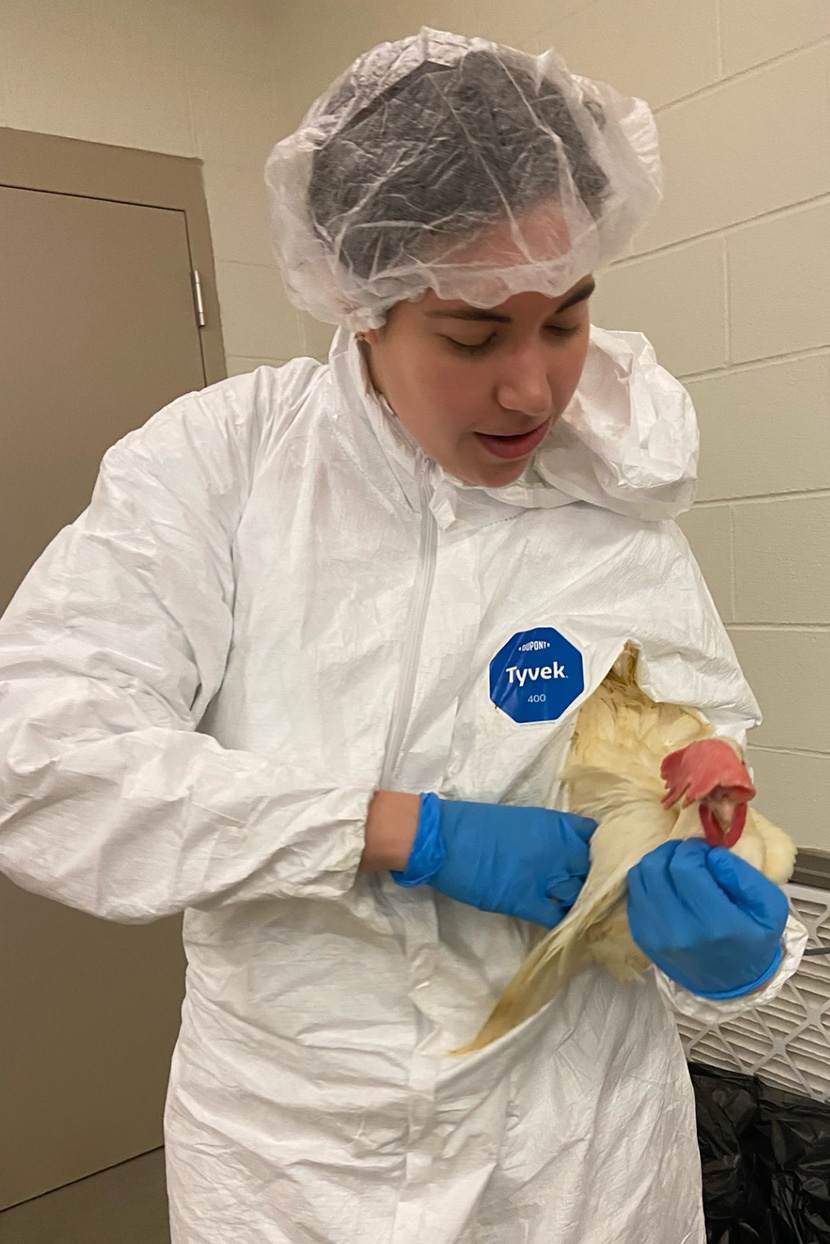 The summer was a win-win for second-year veterinary student Callie Fay.
The summer was a win-win for second-year veterinary student Callie Fay.
Fay was one of 20 Iowa State second- and third-year veterinary students who participated in the annual Summer Scholars Research Program in the College of Veterinary Medicine. The program introduces veterinary medicine students to research in a wide array of areas including clinical medicine, animal science, public health, neuroscience and immunology.
She not only got an idea of the type of research veterinarians do but she learned about the process of research.
“I’m interested in going into pathology and I know that is a career with many opportunities for research,” Fay said, “so it was important to learn everything from the planning and organizing stages to animal handling and lab work.
“This process really gave me a taste of what it might be like to do research as a veterinarian.”
Fay worked with Dr. Mohamed El-Gazzar, associate professor of veterinary diagnostic and production animal medicine, on investigating the pathogenicity of Avibacterium paragallinarum through live chickens.
With the VDL poultry team, they studied the bacteria that causes infectious coryza, an acute upper respiratory disease in chickens. This causes a significant drop in egg production in laying hens resulting in an economic burden for producers. Avibacterium paragallinarum is a primary pathogen and detection of the bacteria should coincide with clinical disease in flocks.
That hasn’t been the case recently as flocks testing positive for Avibacterium paragallinarum haven’t shown any clinical signs. Fay’s research project sought to determine if new strains were nonpathogenic and if they could provide any immune protection against the typical strains of the bacteria responsible for the disease.
The results Fay got from her study were promising.
“I was surprised we got such striking results demonstrating a difference between the nonpathogenic strains and the positive control group,” she said. “I thought the groups infected with the nonpathogenic strains would still become mildly sick, so I was surprised to see them exhibit little to no clinical signs.”
Fay’s research, which was awarded the top prize in Iowa State’s Summer Scholar Research Program this year, did not provide any strong evidence to suggest that nonpathogenic strains provide immune protection against the typical pathogenic bacteria.
“More work needs to be done to evaluate immunogenicity of these strains,” Fay said. “While I’m going to concentrate on my classes this semester, I am curious to see what further work is done in this area to build on what we discovered this summer.”
August 2024
